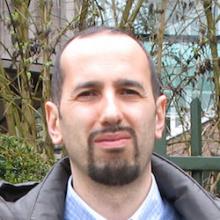
Research Activity
The group’s activities concern, in particular, the following problems:
- discover descriptive behavioral models (e.g., graph-like process models, clustering models, deviant/exceptional subgroups) and predictive models (e.g., for estimating the future behaviour of one or multiple ongoing process instances);
- detect of deviant/anomalous and potentially dangerous behaviors (e.g., violations of constraints descending from business rules/objectives or guidelines, system/network intrusions, cybersecurity attacks);
- compute, analyze and monitor quality/performance indicators defined over event log data (and, possibly, related context information);
- analyze interactions among entities of a system/group, as a result of an argumentation-based dialog/debate;
- interpret sequences of log records in terms of high-level events/activities (represented explicitly in existing process models or documentation, or in the mind of domain experts);
- extract narrative descriptions for log data, and using them within “human-in-the-loop” AI (learning / reasoning / planning) schemes;
- query, comprehend and extract information from documents and text data.
The complexity, volume and mutability of the processes under analysis make these problems challenging, and call for developing solutions that are both efficient and robust to concept-drift and data uncertainty/incompleteness, as well as the capability to fully exploit knowledge and feedback coming from experts and the environment.
To this end, the group’s members have been investing in strenghtening their competencies in the following research fields:
– Machine/Deep Learning
– Ensemble Learning
– Semi-supervised/Transfer/Multi-Task learning
– Continuous/Lifelong Analytics/Learning
– Constraint-based Learning
– Human-in-the-loop Machine Learning
– Human-centric AI
– Knowledge Representation
– Argument-based Reasoning
– Augmented Analytics
– Natural Language Processing
– Social Media Analytics
– Business Process Intelligence
– Process Mining
– Intelligent Process Automation
Goals
The general goal of the group can be summarized as follows: study and develop techniques for analysing (business/human/automated) processes and their associated data, predicting process behavior and supporting a smart optimized automation of organizational and decisional activities.
The main input of such techniques consists of two major families of data:
- temporally data, produced by messaging/ sensoring / tracing mechanisms, as a result of the execution of activities/ processes (e.g., events registered in process / system / transaction / message logs, or generated by IoT/wearable devices or social media systems);
- multi-structured data, coming from different kinds of information sources (e.g., documents employed in business processes, social media posts, news, Web sites, databases).
The group aims at defining models, tools and methods allowing for extracting, from such data, information and knowledge that can help comprehend, predict, automate and improve the processes analyzed and support decisions related to these processes.
Application Fields
Results of the group’s research activities are expected to be useful in different important application contexts, which primarily include the following ones: Cyber-security, Industry 4.0, Smart Cities, Smart City/Community, Smart Government, Sustainable Mobility, Social Media Analytics. Among the many specific fields of potential application, the group is particularly interested in those related to the Public Administration and the Manufacturing and Tertiary sectors (e.g., companies providing financial/e-commerce services).


FRANCESCO PAOLO FOLINO

LUIGI MOCCIA

ERMELINDA ORO

LUIGI PONTIERI

MASSIMO RUFFOLO

PIETRO SABATINO

